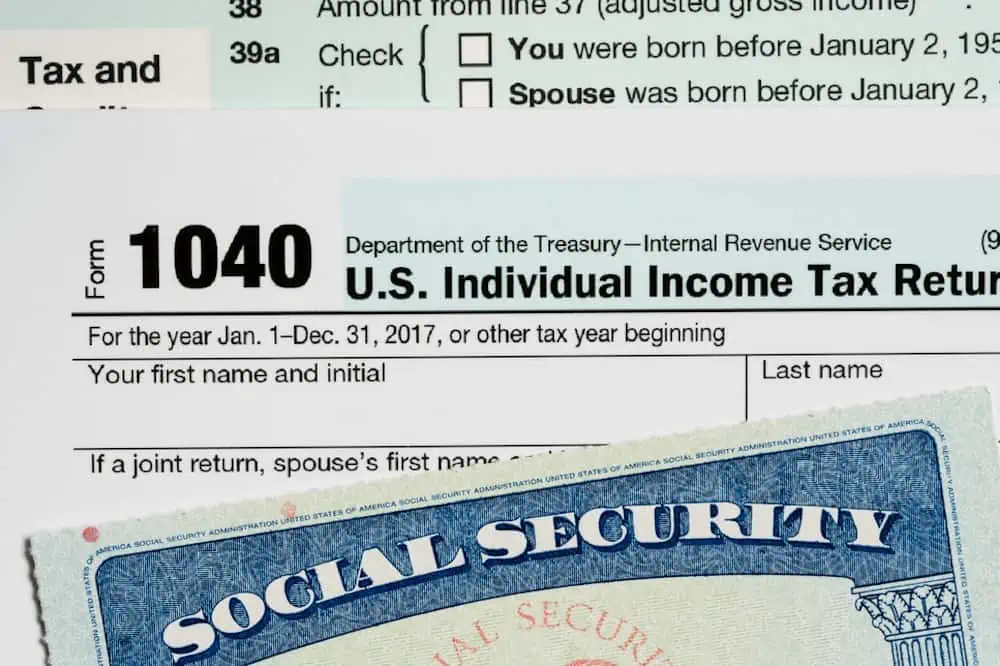When people talk about their retirement “magic number,” they’re typically talking about a target level of savings. That magic number is determined by factoring in a wide variety of likely retirement expenses, and one of the most significant such line items is health care costs.
During your working years, you’re responsible for a host of health care expenses, including insurance premiums, copays, coinsurance, deductibles, out-of-pocket costs, and more. Once you retire … well, that doesn’t really change much. Medicare absorbs a little bit of the bite, but not as much as you’d think; most of those expenses still apply.
Thus, as you construct a financial plan for retirement, part of that plan should be specific to your health care needs. And that’s what I’ll talk about today. Read on as I go over some of the most important aspects of health care planning for retirement, including understanding what costs you’ll face, ways to save specifically for health care costs, and other aspects of health care you’ll need to manage.
Featured Financial Products
Table of Contents
Money-Smart Health Care: Have a Plan (And Act on It)

Are you worried about how expensive your health care costs could get during retirement?
You’re not alone.
According to T. Rowe Price’s 2023 Retirement Savings and Spending Study, the top two spending concerns of retirees are health care-related: paying for long-term care services, and paying for out-of-pocket expenses.
They’re valid concerns, but these concerns can be allayed by budgeting for and saving toward these expenses throughout your working years, then making smart choices once you’re near and in retirement.
Here are the most important components of putting together a retirement health care strategy.
Planning for Health Care Costs: Calculate Expected Costs

Estimating your health care costs will give you a better chance of knowing whether you have enough money set aside in retirement, or if you’ll need to alter your savings plan.
You can check out our fuller look at health care costs in retirement, but in short, the categories you’ll include in your calculations are insurance premiums; deductibles, copays, and out-of-pocket costs; over-the-counter medicines; quality-of-life purchases; and long-term care.
A few considerations:
— If you plan to retire early, keep in mind that your health care costs before you start using Medicare might be significantly different than after you start.
— Medicare helps with expenses, but people often need more medical care as they age. How much more will vary based on your health.
— Medicare doesn’t cover dental, vision, or hearing.
— If your expected costs seem like more than you’ll be able to afford, you might need to delay retirement, accelerate your savings, or utilize more aid programs.
What percent of your budget will go toward health care? According to health care nonprofit KFF, in 2022, average health-related expenses accounted for roughly 14% of Medicare households’ total spending. That number dropped to less than 7% for non-Medicare households.
And remember: This is just an estimate. Your actual health care costs might be significantly different than what you budgeted for, so if you’re going to err in your budget, err on the side of needing more health care expenditures than you expect.
Related: How to Invest HSA Funds [Level Up Your Retirement Savings]
Planning for Health Care Costs: Carefully Choose Your Retirement Age

Another important step in the planning process is determining what age you want to retire.
Let’s say you plan on retiring at age 55. Unless you have a qualifying disability, you can’t start using Medicare until age 65, which leaves you a full decade without employer-sponsored health coverage.
If you’re lucky, you’ll have a spouse who’s still working, and you can join their health plan. If not … well, there are several other options for retirees who are too young for Medicare, though they vary wildly in cost, and they can be very expensive.
For instance, you can use COBRA to continue group health insurance coverage from former employers (for up to 18 months). You could get private health insurance. You could work part-time for a company that offers health insurance to PT employees.
Related: 15 Alarming Gen X Retirement Statistics
Saving for Health Care Costs: Open a Health Savings Account (HSA)

Health savings accounts (HSAs) are a relatively new vehicle that went into effect in 2004. Thus, many retirees and people near retirement might be unfamiliar with these accounts and/or feel it’s too late to make good use of them. Data from the 2023 Voya Financial Consumer Insights & Research survey shows that Gen Z (60%) and Millennials (53%) were much more likely to contribute to a health savings account than Gen X (35%) and Baby Boomers (21%).
However, even if you’re close to retirement, an HSA is an excellent way to save for health care expenses. Account holders can make tax-deductible contributions up to each year’s annual limit, and anyone age 55 and older can make additional catch-up contributions. Earnings grow tax-free, and withdrawals of both contributions and earnings are tax- and penalty-free if used for qualified health care expenses. After age 65, withdrawals can be used for any reason without a penalty, though taxes would still apply if used for costs unrelated to health care.
Not everybody is eligible to contribute to an HSA, however. Individuals must be covered by a high-deductible health plan and not be covered by other health insurance. Additionally, you cannot already be enrolled in Medicare and can’t be eligible to be claimed as a dependent on another person’s tax return.
Related: Best Fidelity Funds to Hold in an HSA
Featured Financial Products
Saving for Health Care Costs: Contribute More to Retirement Accounts

Regardless of whether you’re eligible to contribute to an HSA, it’s probably wise to increase your contributions to your retirement accounts to help build your savings to use toward health care. Retirement accounts come with tax advantages, making them a prime savings option.
Americans who will be 50 or older by the end of the calendar year are allowed to make annual catch-up contributions to almost every type of retirement plan; the catch-up amount varies by account type.
Some people choose to open an IRA specifically dedicated to health care savings. Unused, invested money can continue to grow until you need to withdraw it for health expenses.
Withdrawing earnings from an IRA before age 59½ typically triggers a penalty, so this isn’t ideal for early retirees. But there are some situations where you might be able to avoid the penalty. For example, you may be able to withdraw penalty-free to cover health insurance premiums while you’re unemployed. Same goes for out-of-pocket expenses if you don’t have insurance or if your insurance doesn’t cover them (but unreimbursed expenses must exceed 7.5% of adjusted gross income, or AGI).
Related: Best Vanguard Funds to Hold in an HSA
Featured Financial Products
Managing Your Health / Health Care Plans: Remember Your Medicare Initial Enrollment Period

Medicare is a ubiquitous form of health care coverage, and while it covers those with disabilities and certain illnesses, it is primarily used by soon-to-be and current retirees. More than 67 million people are enrolled in Medicare, and 90% of that count is age 65 or older.
One of the most important steps in the Medicare process is this first one. If you enroll in Medicare at the wrong time, it can cost you big-time.
Medicare has a seven-month “initial enrollment period” (IEP) that, as it pertains to eligibility because of age, begins three months before the month of your 65th birthday, during the month of your 65th birthday, and the three months after the month of your 65th birthday. While many Americans are automatically signed up for Medicare Parts A and B when they first become eligible (for instance, if you started collecting Social Security before age 65, you’re auto-enrolled), some people aren’t. If you aren’t, and you don’t apply for Medicare Part B within this time frame, you could face a permanent penalty in which your monthly premiums increase 10% for every 12-month period you don’t have coverage.
Medicare Part D has a similar penalty in which monthly premiums permanently increase by 1% for each month past your IEP that you don’t enroll.
There are exceptions. For instance, if you or your spouse is still employed and enrolled in an employer’s health care plan during what would have been your IEP, you typically can delay your enrollment in Medicare Part B. You can instead use a special enrollment period (SEP) to enroll. You can do this while you’re still using an employer plan. You can also do this within eight months from either when your employer ends or when your employer-provided medical coverage ends, whichever comes first.
Related: Best Schwab Funds to Hold in an HSA
Managing Your Health / Health Care Plans: Consider Medicare Supplement Insurance (Medigap)

Medicare Supplement Insurance (Medigap) isn’t part of the government’s Medicare program; instead, it’s supplemental coverage you can purchase from a private provider if you have Medicare Part A and B.
You can enroll during your Medigap Open Enrollment period, which starts during the first month in which you have Medicare Part B and are age 65 or older. The period lasts for six months. However, unlike Medicare, which has regular enrollment periods, Medigap’s enrollment period is a one-time affair. So once the open enrollment period ends, you might have to pay more to get Medigap coverage, or you might not be able to buy a policy at all.
Medicare Supplement Insurance premiums can vary substantially based on where you live, the insurance company, and the plan. Some plans offer discounts to specific groups of people, such as non-smokers. Generally, the benefits of each lettered plan (ex: Plan G) are the same regardless of the insurance company selling it. Medicare doesn’t pay the premiums for Medigap policies, and the premium costs usually increase each year, so anyone who plans to get Medigap needs to budget for this cost.
Policyholders usually pay between $80 to $300 per month, with costs varying substantially by state. The average 2024 premium amount for Medicare Supplement is $137.
Related: 9 Financial Mistakes That Can Quickly Drain Your Retirement Savings
Managing Your Health / Health Care Plans: Weigh the Pros + Cons of Medicare Advantage

Medicare Advantage, also known as Part C, is the private insurance alternative to original Medicare.
Medicare Advantage is a private combination of Parts A and B (and often Part D). You must sign up for Part A or Part B before you can enroll in a Medicare Advantage plan. And Medicare Advantage users still need to pay their Part B premium—and potentially an additional premium for the Advantage plan itself.
Medicare Advantage plans have their own deductibles, copays, and coinsurance, which can both vary from plan to plan, and significantly differ from Part B’s set 20% coinsurance. Part C plans also cap annual out-of-pocket expenses.
Like with traditional private insurance, Part C can feature health maintenance organization (HMO), preferred provider organization (PPO), private fee-for-service (PFFS), and other plan types. They also distinguish between in-network and out-of-network providers, so you would have to make sure your preferred providers operate within the network. Also, your plan choices might be more limited if you live in a rural area.
In short: Part C isn’t inherently better than “original Medicare”—you just have to determine which type of medicare best fits your needs.
Related: Should Retirees Move? 10 Considerations
Managing Your Health / Health Care Plans: Take Care of Your Health

As any doctor or insurer will tell you, it’s a heckuva lot cheaper to prevent health issues than to treat them.
Yes, your health isn’t 100% in your control. But you can stack the deck in your favor by making healthy choices and addressing potential issues before they get worse.
I realize this sounds obvious. But people can often be so focused on their finances now that they neglect their health now—to the long-term detriment of both.
The good news? Pre-retirees are improving in this respect. According to the 2024 MassMutual Retirement Happiness Study, fewer than 4 in 10 current retirees said they made efforts to take care of their health in the years leading up to retirement. Comparatively, 2 in 3 of pre-retirees said they are taking care of their health in preparation for retirement.
Make your health a priority. Get checkups and other exams, and generally try to live a healthier life, to save yourself both financial and medical issues down the road.
Related: Do I Need a Financial Advisor? 7 Questions to Ask Yourself
Featured Financial Products
Related: 10 Ways You Risk Losing Your Social Security Benefits

Social Security is designed to provide some financial stability to certain groups of Americans. But while it’s virtually guaranteed to those groups, it can, in certain circumstances, be taken away. We cover the numerous ways in which you can risk losing your Social Security benefits.
Related: 11 Ways To Avoid Paying Taxes on Your Social Security

If you’re looking to minimize the tax bite taken out of your Social Security benefits in retirement, you’ve got several available actions to reduce how much you pay each year. We outline several ways to avoid paying taxes on your Social Security benefits.
Related: How Are Social Security Benefits Taxed?

In many cases, Social Security benefits are subject to federal taxation. To learn how your Social Security benefits are taxed, we’ve got an entire guide to walk you through the calculation.
Related: 10 States That Tax Social Security Benefits

While most states don’t subject Social Security benefits to taxation, at least 10 states do tax Social Security. To see if you live in one of them, or you’re considering a relocation for retirement and taxation of your Social Security is a sticking point, we’ve got you covered with all of the details.
Please Don’t Forget to Like, Follow and Comment

Did you find this article helpful? We’d love to hear your thoughts! Leave a comment with the box on the left-hand side of the screen and share your thoughts.
Also, do you want to stay up-to-date on our latest content?
1. Follow us by clicking the [+ Follow] button above,
2. Subscribe to The Weekend Tea, our weekly newsletter to read more about investing, spending, taxes, and more, and
3. Give the article a Thumbs Up on the top-left side of the screen.
4. And lastly, if you think this information would benefit your friends and family, don’t hesitate to share it with them!





